Top 13 Diseases and Medical Conditions in Thailand that Expats Should Be Aware Of
We have identified Dengue fever, malaria, chikungunya, HIV, Hepatitis A and B, Zika, typhoid fever, Japanese encephalitis, rabies, leptospirosis, food poisoning, respiratory illnesses, and Hand, Foot, and Mouth Disease as the top 13 diseases in Thailand that expats need to be extra careful about.
The allure of Land of Smiles lies in its beautiful scenery, rich culture, warm climate, and friendly locals, attracting expats from around the globe. Nonetheless, moving to a new environment comes with new health risks, making it essential for expats to be mindful of prevalent diseases in Thailand.
Despite significant improvements in healthcare, several diseases still threaten the well-being of expats in Thailand. These diseases range from mosquito-borne illnesses to food and waterborne diseases, underscoring the importance of necessary precautions to avoid infection.
13 Diseases and Medical Conditions in Thailand that Expats Should Be Vigilant About
Dengue fever, malaria, chikungunya, HIV, Hepatitis A and B, Zika, typhoid fever, Japanese encephalitis, rabies, leptospirosis, food poisoning, respiratory illnesses, and Hand, Foot, and Mouth Disease are the top 13 diseases that expats in Thailand should be vigilant about. Let’s learn more about them now.

Dengue Fever
Dengue fever is a common occurrence in Thailand, with tens of thousands of cases reported every year, especially during the rainy season from May to October. The Aedes mosquito, which is active in the daytime, is responsible for the disease’s transmission.
How Dengue Fever Spreads
Dengue fever is a common occurrence in Thailand, with tens of thousands of cases reported every year, especially during the rainy season from May to October. The Aedes mosquito, which is active in the daytime, is responsible for the disease’s transmission.
How Dengue Fever Spreads
Dengue fever is transmitted when an Aedes mosquito bites a person carrying the virus and then bites another person, thereby spreading the virus.
Symptoms of Dengue Fever
The symptoms of Dengue fever usually appear between 3 to 14 days after a mosquito bite from an infected individual. These symptoms can vary from mild to serious and may include:
- High fever
- Severe headache
- Pain behind the eyes
- Joint and muscle pain
- Nausea and vomiting
- Skin rash
In some cases, Dengue fever can progress to a severe form known as Dengue hemorrhagic fever, which can cause bleeding, shock, and potentially even death.
What to Do If You Are Infected
Since there is no specific treatment for Dengue fever, managing the symptoms is crucial. This may involve taking over-the-counter pain relievers, getting lots of rest, and staying hydrated In serious cases, hospitalization may be necessary.
How to Avoid Getting Infected
The most effective way to prevent Dengue fever is by avoiding mosquito bites. The following are some preventative measures:
- Apply mosquito repellent containing DEET or picaridin
- Wear long-sleeved shirts and pants
- Use mosquito nets during the night
- Stay in air-conditioned or screened areas
- Eliminate standing water around your home, as mosquitoes breed in it
Expats living in Thailand should also consider getting vaccinated against Dengue fever. However, it’s worth noting that the vaccine is not 100% effective and not recommended for everyone.
It’s essential to seek personalized advice from your healthcare provider on Dengue fever prevention and vaccination.

Malaria
Malaria is a mosquito-borne disease common in some parts of Thailand, particularly in border areas. Fortunately, over the past decade, malaria incidence in Thailand has significantly decreased, with approximately 3,000 cases reported in 2019.
However, some parts of the country, especially along the borders with Myanmar and Cambodia, still have a higher risk of malaria transmission.
How Malaria Spreads
Malaria is spread by the Anopheles mosquito, which is most active between dusk and dawn. The mosquito becomes infected by biting a person with malaria and then spreads the parasite to other people through its bites.
Symptoms of Malaria
Malaria symptoms usually appear 7-30 days after an infected mosquito bite and may include:
- Fever
- Chills
- Headache
- Muscle aches
- Fatigue
- Nausea and vomiting
In severe cases, malaria can cause organ failure and even death.
What to Do If You Are Infected
Malaria can be treated with medication, and it’s crucial to seek medical attention as soon as possible since the disease can progress rapidly. Treatment typically involves a combination of antimalarial medications that may differ based on the type of malaria and severity of infection.
How to Avoid Getting Infected
The best way to prevent malaria is to avoid mosquito bites, which means you should:
- Apply mosquito repellent containing DEET or picaridin
- Wear long-sleeved shirts and pants
- Use mosquito nets while sleeping
- Stay in air-conditioned or screened areas
- Eliminate standing water around your home because mosquitoes breed in it
Expats in Thailand should also consider taking antimalarial medication, particularly if they plan to travel to high-risk areas. It’s essential to consult with a healthcare professional for personalized advice on preventing malaria and medication.

Chikungunya
Chikungunya is a viral disease that is transmitted by mosquitoes. Although relatively uncommon in Thailand, with only a few hundred cases reported per year, outbreaks can occur, particularly during the rainy season from May to October.
How Chikungunya Spreads
Chikungunya is transmitted by the Aedes mosquito which is active during daytime. The mosquito becomes infected by biting an individual with chikungunya and then spreads the virus to other people through its bites.
Symptoms of Chikungunya
Symptoms of chikungunya typically surface 3-7 days after an infected mosquito bite and may include:
- High fever
- Joint pain
- Muscle pain
- Headache
- Nausea and vomiting
- Rash
In some cases, joint pain may persist for months or even years since the initial infection.
What to Do If You Are Infected
Since there is no specific treatment for chikungunya, the focus is on managing the symptoms. This may involve taking over-the-counter pain relievers, getting plenty of rest, and consuming fluids to stay hydrated.
How to Avoid Getting Infected
The most effective way to prevent chikungunya infection is to avoid mosquito bites. You can:
- Apply mosquito repellent containing DEET or picaridin
- Wear long-sleeved shirts and pants
- Use mosquito nets while sleeping
- Stay in air-conditioned or screened areas
- Eliminate standing water around your home because mosquitoes breed in it
Expats in Thailand should also be aware of the symptoms of chikungunya and seek medical attention if they experience a fever or joint pain following a mosquito bite. There is no chikungunya vaccine, and taking steps to avoid mosquito bites is pivotal to preventing infection.
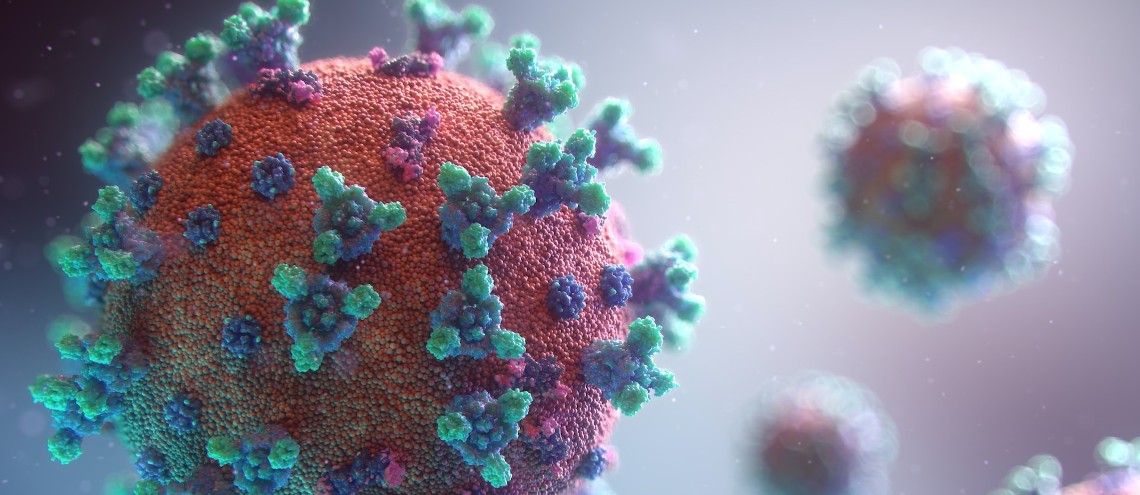
HIV
HIV (Human Immunodeficiency Virus) is a major public health issue in Thailand, with an estimated 520,000 people living with HIV in 2021. HIV can lead to HIV/AIDS, a severe condition that significantly compromises the immune system, making a person vulnerable to numerous infections and cancers.
How HIV is Transmitted
HIV is primarily transmitted in the following ways:
- Unprotected sex with an infected person
- Sharing of needles or syringes
- From mother to child during childbirth or via breastfeeding
Symptoms of HIV Infection
The symptoms of HIV infection vary between different people, and can be similar to those of many common illnesses. Some infected people may not experience any symptoms for years, making it difficult to detect the virus.
Within two to four weeks of initial infection, some people may exhibit flu-like symptoms, such as:
- Fever
- Sore throat
- Body aches
What to Do If You Are Infected
If you suspect that you may have the HIV virus, it is crucially important to get tested as quickly as possible. Early detection and treatment are useful for managing the virus and delaying the onset of AIDS.
Treatment for HIV involves antiretroviral therapy (ART), which is a combination of medications that suppress the virus, thereby allowing the immune system to recover and function more effectively. With proper treatment, people with HIV can lead healthy and productive lives.
How to Avoid Getting Infected
Practicing safe sex by using condoms consistently and correctly is critically important to avoiding infection. Avoid the sharing of needles or syringes, and if you need to use them, make sure they are sterile.
If you are pregnant and have HIV, it is essential to seek medical care immediately to minimize the risk of transmitting the virus to your baby. Moreover, regular HIV testing is suggested for sexually active individuals and those who are at an elevated risk of infection.

Hepatitis A and B
Hepatitis A and B are viral infections that affect the liver. Both types are relatively common in Thailand, with Hepatitis B being more prevalent. Hepatitis A is endemic in Thailand, with occasional outbreaks, while Hepatitis B is also endemic but has become more rare in recent years due to vaccination initiatives.
How Hepatitis A and B Spread
Hepatitis A spreads through contaminated food and water, and close contact with an infected person. Hepatitis B spreads via contact with infected blood or body fluids, such as during sexual activity or when sharing needles.
Symptoms of Hepatitis A and B
Symptoms of Hepatitis A and B may differ, but both can affect the liver and lead to:
- Jaundice (yellowing of the skin and eyes)
- Fatigue
- Nausea and vomiting
- Abdominal pain
- Loss of appetite
- Joint pain
In severe cases, Hepatitis B may cause chronic infection, which can eventually cause cirrhosis or liver cancer.
What to Do If You Are Infected
Since there is no specific treatment for Hepatitis A and B, the focus is on managing symptoms. In serious or chronic Hepatitis B cases, antiviral medications may be recommended by the doctor.
How to Avoid Getting Infected
The most effective way to prevent Hepatitis A and B is by practicing good hygiene and avoiding exposure to contaminated blood and body fluids. You should:
- Get vaccinated against Hepatitis A and B
- Wash hands thoroughly with soap and water often
- Avoid contaminated food and water
- Use a condom during sexual activity
- Avoid sharing needles or other injection equipment
Expats in Thailand should consider getting vaccinated against Hepatitis A and B, particularly if they plan to stay in the country for an extended period of time. It’s essential to consult with a healthcare professional for personalized advice on Hepatitis A and B prevention and relevant vaccinations.
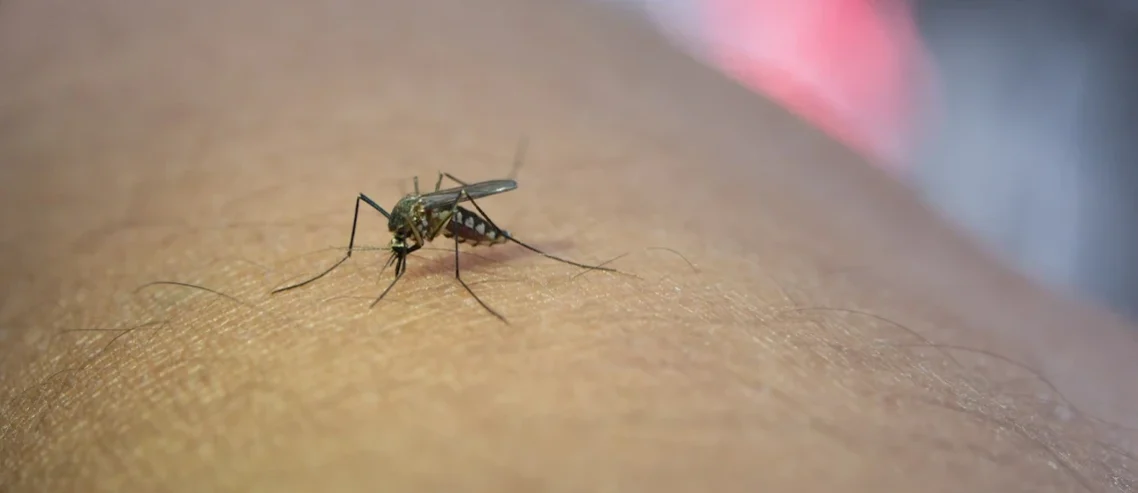
Zika
Zika is yet another viral disease transmitted by mosquitoes. Though relatively uncommon in Thailand, with only a few confirmed cases reported in recent years, there is a risk of outbreaks, particularly during the rainy season from May to October, similar to other mosquito-borne diseases.
How Zika Spreads
Zika spreads through the Aedes mosquito, which is active during the daytime. The mosquito becomes infected by biting a person with Zika, and then spreads the virus to other people through its bites. Zika can also spread through sex and from mother to child during pregnancy.
Symptoms of Zika
Zika symptoms are normally mild and may include:
- Fever
- Rash
- Joint pain
- Headache
- Muscle pain
- Red eyes (conjunctivitis)
However, in some cases, Zika infection occuring during pregnancy may cause birth defects, such as microcephaly (a smaller-than-normal head and brain size) and other neurological problems in the infant.
What to Do If You Are Infected
Since there is no specific treatment for Zika, the focus is on managing symptoms. Rest, fluids, and over-the-counter pain relievers may be helpful. Pregnant women with Zika infection should receive specialized care since there is a risk of complications for the baby.
How to Avoid Getting Infected
The most effective way to prevent Zika is avoiding mosquito bites, meaning you should:
- Use mosquito repellent containing DEET or picaridin
- Wear long-sleeved shirts and pants
- Use mosquito nets while sleeping
- Stay in air-conditioned or screened areas
- Eliminate standing water around your home as mosquitoes breed in it
Expats in Thailand should be aware of the symptoms of Zika and seek medical attention if they experience a fever or rash following a mosquito bite. Pregnant women should take extra steps to avoid mosquito bites and consult with a healthcare professional about their travel plans.
Although there is no Zika vaccine, taking steps to prevent mosquito bites can help prevent infection.

Typhoid Fever
Typhoid fever is a bacterial infection that is relatively uncommon in the Land of Smiles, with only a few hundred cases reported annually. However, the risk of outbreaks remains, particularly in areas where good hygiene and sanitation are unavailable.
How Typhoid Fever Spreads
Typhoid fever spreads through contaminated food and water, and close contact with an infected person. The bacteria responsible for typhoid fever, Salmonella enterica serotype Typhi, live in the intestines and bloodstream of infected persons and can be shed in feces and urine.
Symptoms of Typhoid Fever
The symptoms of typhoid fever may include:
- High fever
- Headache
- Abdominal pain
- Diarrhea or constipation
- Fatigue
- Rash
- Confusion
In more serious cases, typhoid fever can lead to complications such as intestinal bleeding, intestinal perforation, and possibly even death.
What to Do If You Are Infected
If you contract typhoid fever, it’s crucial to seek medical attention promptly, as the disease can rapidly worsen. While antibiotics are the standard treatment, the specific course may vary depending on the severity of the infection.
How to Avoid Getting Infected
To avoid getting infected, the most effective approach is to practice good hygiene and avoid exposure to contaminated food and water. You should:
- Receive the typhoid fever vaccine
- Regularly wash hands with soap and water
- Avoid consumption of contaminated food and water
- Stay away from infected individuals
- Practice safe sex by using a condom
Expats in Thailand should consider getting vaccinated against typhoid fever, particularly if they plan to live in the country for an extended period or travel to areas with poor sanitation and hygiene.
It’s crucial to consult with a healthcare professional for personalized advice on preventing typhoid fever and getting vaccinated.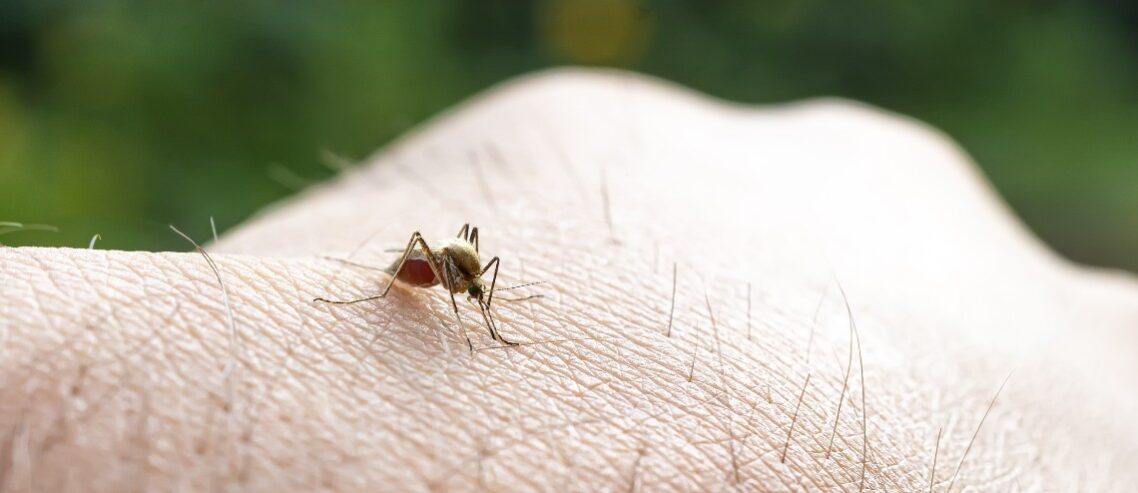
Japanese Encephalitis
Japanese encephalitis is a viral disease transmitted by mosquitoes and is endemic in the Land of Smiles, with a few hundred cases reported every year. The disease is most common in rural areas, especially in central and northern Thailand.
How Japanese Encephalitis Spreads
Japanese encephalitis spreads through the Culex mosquito, which is active during nighttime. The mosquito becomes infected when it bites an infected animal, typically a pig or a bird, and subsequently spreads the virus to other animals and people.
Symptoms of Japanese Encephalitis
Japanese encephalitis symptoms may vary between cases but typically include:
- Fever
- Headache
- Nausea and vomiting
- Stiff neck
- Seizures
- Confusion
- Coma
In serious cases, Japanese encephalitis can cause permanent brain damage or even death.
What to Do If You Are Infected
There is no specific treatment for Japanese encephalitis, and symptom management is the focus of treatment. This may involve taking plenty of rest and fluids to stay hydrated, and pain relievers available over the counter. In severe cases, hospitalization may become necessary.
How to Avoid Getting Infected
The most effective way to prevent Japanese encephalitis is to avoid mosquito bites. You should:
- Get vaccinated
- Use mosquito repellent containing DEET or picaridin
- Wear long-sleeved shirts and pants
- Use mosquito nets while sleeping
- Stay in air-conditioned or screened areas
- Eliminate standing water around your home as mosquitoes breed in it
Expats planning to live in Thailand for an extended period or travel to rural areas should consider getting vaccinated against Japanese encephalitis. It’s essential to consult with a healthcare professional for personalized advice on preventing and getting vaccinated against Japanese encephalitis.
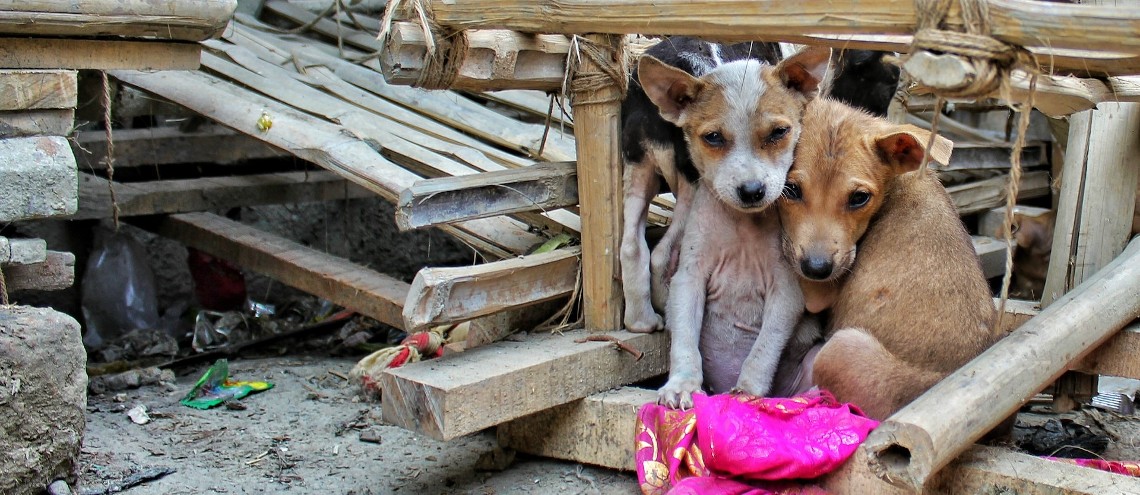
Rabies
Rabies is a viral disease that impacts the central nervous system. Although rabies is relatively uncommon in Thailand, with only a few hundred cases reported every year, there is a risk of exposure, especially in rural areas.
How Rabies Spreads
Rabies is typically spread through the bite or scratch of an infected animal, such as a dog or bat. The virus can also be transmitted by coming into contact with an infected animal’s saliva, such as through licking an open wound or mucous membrane.
Symptoms of Rabies
The symptoms of rabies can vary, but they generally include:
- Fever
- Headache
- Muscle weakness
- Anxiety
- Confusion
- Paralysis
- Seizures
- Agitation or aggression
In the vast majority of cases, rabies is fatal once symptoms appear.
What to Do If You Are Infected
If an animal bites or scratches you, clean the wound thoroughly with soap and water and seek medical attention immediately. Treatment typically involves a series of vaccines to prevent the virus from spreading to the entire body.
How to Avoid Getting Infected
The best way to prevent rabies is to avoid contact with animals that could carry the virus. You should:
- Vaccinate pets against rabies
- Stay away from stray animals
- Take precautions when you’re in the presence of bats, such as wearing gloves and being extra careful when cleaning bat roosts or caves
- Seek medical attention immediately if you’re bitten or scratched by an animal
Expats in Thailand should bear in mind the risk of rabies and take measures to avoid coming into contact with animals that could carry the virus. It’s essential to seek personalized advice from a healthcare professional regarding rabies prevention and vaccination.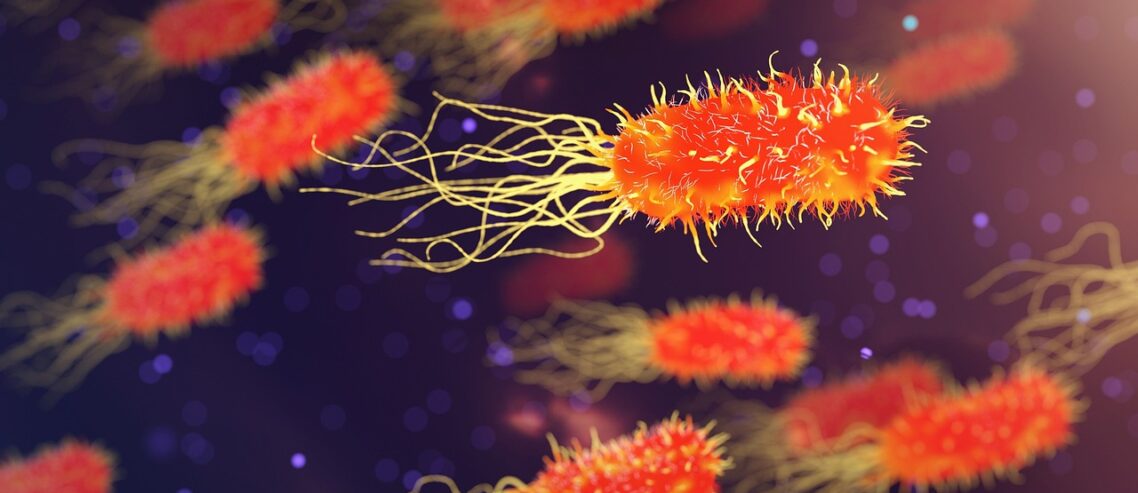
Leptospirosis
Leptospirosis is a bacterial disease that is comparatively common in Thailand, especially during the rainy season from May to October. The disease is most common in rural areas, particularly among farmers and people who work outdoors.
How Leptospirosis Spreads
Leptospirosis is typically spread through contact with the urine of infected animals, such as rats or livestock. The bacteria enters the body through cuts or abrasions on the skin, as well as through the mucous membranes of the eyes, nose, or mouth.
Symptoms of Leptospirosis
The symptoms of leptospirosis can vary between mild and severe and may include:
- Fever
- Headache
- Muscle pain
- Nausea and vomiting
- Diarrhea
- Abdominal pain
- Jaundice
- Kidney failure
- Meningitis
Leptospirosis can be fatal in severe cases.
What to Do If You Are Infected
If you suspect that you have leptospirosis, seek medical attention immediately. Treatment typically involves a course of antibiotics, which may vary depending on the severity of the infection. In severe cases, hospitalization may become necessary.
How to Avoid Getting Infected
The most effective way for preventing leptospirosis is to avoid contact with the urine of infected animals. You should:
- Wear protective clothing, such as gloves and boots, when you’re working with animals or in areas in which animals may have urinated
- Wash your hands thoroughly with soap and water after working with animals or in areas in which animals may have urinated
- Avoid swimming or wading in water if it may be contaminated with animal urine
- Remove trash and debris from around your home to reduce the chances of attracting rodents
Expats in Thailand should bear in mind the risk of leptospirosis and take necessary precautions to avoid coming into contact with the urine of infected animals. It is important to seek personalized advice from a healthcare professional regarding the prevention and vaccination against leptospirosis.
Food Poisoning
Tourists in Thailand often worry about food poisoning, which happens when one consumes contaminated food or water. Thailand is a tropical country, and food that is not properly stored can easily spoil, which is why we need to be extra careful about food hygiene in Thailand.
How Food Poisoning Can Happen
Contaminated food or water, undercooked food, and food that has been left out in the open for too long are all potential causes of food poisoning. Another way that food poisoning can occur is when leftover food is not properly stored and rodents and rats come into contact with it.
Rodents and rats carry many harmful bacteria such as E. coli, Salmonella, and Listeria. They can contaminate food and food preparation surfaces with their hair, urine, and feces.
Symptoms of Food Poisoning
The symptoms of food poisoning can vary and depend on the degree of contamination, with some common signs including:
- Abdominal pain
- Nausea
- Vomiting
- Diarrhea
- Fever
- Dehydration
In severe cases, food poisoning can result in organ failure or even death.
What to Do If Food Poisoning Happens to You
If you think you have food poisoning, seek medical attention immediately. Hospitalization and intravenous fluids may be needed. Also, take some rest and stay well-hydrated by consuming fluids like water, coconut water, or sports drinks while avoiding solid food until your condition improves.
How to Avoid Food Poisoning
To reduce the risk of getting food poisoning during your travels in Thailand, it is necessary to be cautious when consuming food and water. The following tips can assist you in avoiding food poisoning:
- Select reputable restaurants and food vendors with high food turnover
- Avoid eating food left in the open for prolonged periods
- Abstain from consuming raw or undercooked meat and seafood
- Drink only bottled or boiled water and avoid using ice made from tap water
- Refrain from eating fruits and vegetables that have not been correctly washed or peeled
- Always carry hand sanitizer and use it frequently
- Avoid eating food from street vendors or unhygienic places
- Consider taking probiotics or supplements to enhance your immune system and digestion
By following these straightforward guidelines, being cautious when consuming food and water, and paying attention to the latest announcements, you can minimize your risk of contracting food poisoning while traveling in Thailand.

Respiratory Illnesses
In Thailand, respiratory illnesses can result from different viruses, and can range from relatively mild conditions such as the common cold to potentially life-threatening illnesses such as pneumonia and acute respiratory distress syndrome (ARDS).
How Respiratory Illnesses Spread
Respiratory illnesses can be transmitted in different ways, including through respiratory droplets released when an infected person coughs or sneezes, touching surfaces contaminated with the virus and then touching your face, or close contact with an infected person.
Symptoms of Respiratory Illnesses
The symptoms of respiratory illnesses differ based on the virus causing the infection. Common indications include:
- Coughing
- Sore throat
- Runny or congested nose
- Fever
- Body aches
- Fatigue
- Shortness of breath
In severe cases, respiratory illnesses can result in pneumonia, bronchitis, and in rare instances, death.
What to Do If You Are Infected
If you exhibit symptoms of respiratory illness, seek medical attention promptly. Treatment for respiratory illnesses may involve antiviral medication, rest, and hydration. It is vital to adhere to the healthcare provider’s instructions and take the prescribed medication as directed.
How to Avoid Getting Infected
To reduce the risk of respiratory illnesses while traveling in Thailand, consider the following tips:
- Practice good hygiene by frequently washing your hands with soap and water or using hand sanitizer
- Wear a mask in public areas and practice social distancing to prevent the spread of respiratory droplets
- Avoid close contact with people who are sick
- Refrain from touching your face and mouth with unwashed hands
- Get vaccinated for influenza
- Boost your immune system by maintaining a healthy diet, getting adequate sleep, and exercising regularly
- Stay up-to-date about local outbreaks and adhere to the advice of public health authorities
Getting vaccinated annually against pneumonia is a very helpful protection against this potentially deadly condition. Finally, if your doctor tells you to complete a course of treatment even if all your symptoms disappear midway, you should still do as told by your doctor.
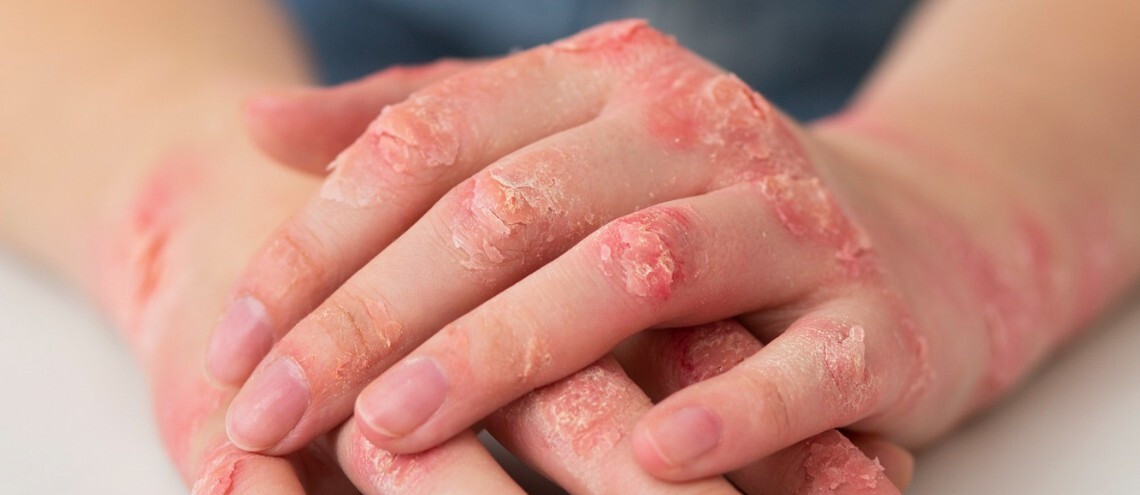
Hand, Foot, and Mouth Disease
Hand, foot, and mouth disease (HFMD) is a mild and contagious viral infection that primarily affects young children. Symptoms include mouth sores and a rash on the hands and feet, with the most common cause being a coxsackievirus.
There is no specific treatment for this disease. To reduce your risk of infection, practice frequent hand-washing and avoid close contact with those who are infected.
How Hand, Foot, and Mouth Disease Spreads
HFMD is highly contagious and primarily spreads through:
- Direct contact with an infected person’s fluids, such as saliva or blister fluid
- Respiratory droplets released when an infected person coughs or sneezes
- Contaminated surfaces and objects, such as toys or utensils
The disease can be transmitted even before symptoms appear. It is therefore crucial to practice good hygiene.
Symptoms of Hand, Foot, and Mouth Disease Infection
HFMD typically causes mild symptoms that may include:
- Initial Symptoms: Fever, sore throat, and loss of appetite
- Advanced Symptoms (1-2 days after the initial signs): Painful mouth ulcers, and rash or spots on the hands, feet, and sometimes the buttocks
The rash may appear as red spots that can develop into blisters.
What to Do If You Are Infected
If you suspect you or your child has HFMD, consider the following steps:
- Drink cool fluids to soothe mouth pain and prevent dehydration
- Consume soft foods to ease discomfort
- Use over-the-counter pain relievers, such as paracetamol or ibuprofen
- Keep an eye on hydration levels, especially in children
- Seek medical advice if symptoms persist beyond 10 days or worsen
How to Avoid Getting Infected
Preventing HFMD involves simple hygiene practices:
- Hand Hygiene: Wash hands frequently with soap and water, especially after using the restroom or changing diapers
- Avoid Close Contact: Keep distance from infected individuals and avoid sharing personal items like towels or utensils
- Disinfect Surfaces: Regularly clean objects and surfaces that may be contaminated, especially in communal settings like daycare centers
After contracting HFMD, individuals typically develop some degree of immunity, but only to the specific virus that caused their infection. HFMD is most often caused by enteroviruses, and in particular Coxsackievirus A16 and Enterovirus 71.
However, this immunity may not last long, and because HFMD can be caused by numerous different viruses, people can still get infected again if they come into contact with other strains of the virus. Therefore, the protection one gets from a previous HFMD infection is very limited.
Conclusion
While we should all do our best to prevent infections, it is no less important that we secure sufficient health insurance. That way, should you find yourself needing costly medical services, you can rest assured that the medical bills will be paid by your insurer, and focus on getting well soon.
What’s more, with the right expat health or international health insurance, you can be repatriated to your home country for the most suitable medical care if needed. Your insurer will pay for your repatriation and help with the arrangements, and these are crucially helpful if repatriation is needed.
With 20+ years of experience in insurance, Pacific Prime is well positioned to tailor a solution that meets your needs and fits your budget, and you can benefit from our advice and support at no extra cost compared to going straight to an insurer.
So contact us for a quote or a FREE, no-obligation plan comparison today!
Frequently Asked Questions
How can I prevent getting infected with transmissible diseases in Thailand?
To lessen your risk of infection, always maintain good hygiene, avoid contaminated food and water, get vaccinated, take measures to prevent mosquito bites, avoid contact with wild or stray animals, and avoid unsafe sex. Also, stay informed about diseases rampant in your vicinity.
What should I do if I may already have been infected?
If you suspect you have been infected, contact a healthcare professional, follow medical advice, rest and stay hydrated, isolate yourself if necessary, inform others with whom you have been in close contact, and take preventive measures like wearing a face mask to prevent spreading the disease.
What vaccinations are recommended before traveling to Thailand?
Before leaving for Thailand, you should seek medical advice on vaccinations. Some common vaccinations for visitors to Thailand are those for typhoid fever, Hepatitis A, Japanese encephalitis, measles, mumps, and rubella (MMR), tetanus, diphtheria, and pertussis (Tdap), rabies, and influenza.
Where can I obtain the latest information on transmissible diseases in Thailand?
Visit the Ministry of Public Health website for the latest update. The World Health Organization (WHO) also provides information on transmissible diseases for the Land of Smiles.
Is street food safe in Thailand?
Overall, street food can be safe to eat in Thailand provided you take the necessary precautions. Use common sense and trust your instincts when buying from food stalls. If you’re uncertain about the safety of a particular vendor, avoid it and choose another.
- Top 13 Diseases and Medical Conditions in Thailand that Expats Should Be Aware Of - March 27, 2025
- Buying a Used Car Offering Great Value for Money in Thailand - October 8, 2024
- Thailand Expands Maternity Leave to 98 Days: A Boost for Working Women - September 11, 2024






Comments
Comments for this post are closed.
We'll notify you
when our team replies!